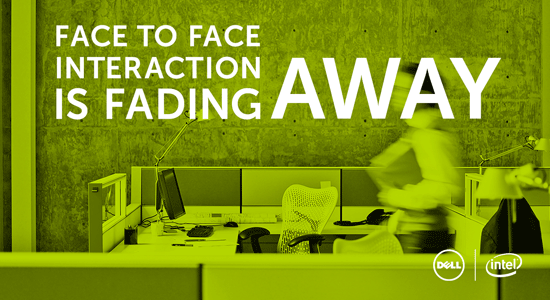Over 1 in 3 millennials fear that artificial intelligence (AI) could lead to robots taking their job. Though this fear may seem farfetched, companies like Amazon and UPS have already announced research in the direction of using drones for home deliveries and beyond. With communication and productivity technologies at a steady growth, it is inevitable that many tasks employees were once responsible for will be taken by AI, and the workplace we once knew is destined to get a major upgrade. Amazon’s patent application for its drone delivery system is well underway, and the fear of robots replacing human’s in the workforce is becoming increasingly valid.
While millennials fear that new technologies could override their own work, they have not backed away from leading the integration of these innovations in the workplace. In fact 75 percent of millennials agree that AI could make their jobs easier and 42 percent of millennials are more likely to quit a job when there is substandard technology. Employees worldwide are ready and eager to upgrade their work devices. In the next five years, 57 percent of global employees expect to be working in smart offices, including technology with virtual/augmented reality capabilities. Millennials, in particular, are confident in the healthier work-life balance that new technologies will bring, and they see potential for a workforce that is more productive, capable and mobile. 79 percent of millennials view the integration of new technologies as an avenue to create a more collaborative workspace and 52 percent feel that virtual/augmented reality (AR) would lead to more productivity. Imagine that, AR can be used for more than just Pokemon Go. I have personally worked on investigations around how AR could make IT professionals who manage datacenters more productive, and the technology is not far away.
Employee’s lifestyle’s are constantly changing and driving the evolution of the workforce. Currently, over half of global employees work remotely several times a week. By working remotely, workers are seeing significant benefits in their productivity and quality of life. 35 percent of employees concentrate better when working remotely and feel that it helps them maintain a healthy work-life balance. This is definitely true for me. When I am able to work from home one day a week I am more able to knock high priority tasks off my to do list, and even though I often end up working more hours in that day, I also feel more connected to my family. Companies like Spacious are catering to the future workforce by turning some of New York City’s hottest dinner spots into work spaces during the day. While it is becoming more normal for workers to not report to an office, collaboration is not being sacrificed. 71 percent of global employees believe that the workplace is becoming more collaborative, and 73 percent of millennials feel that advanced technologies allow them to collaborate with colleagues remotely. It is hard to think back to what remote meetings were like before VOIP and screen sharing from software like Skype for Business.
The workplace employees have known for so long is transforming and it is only going to get more advanced and high-tech as it progresses in this new direction. While change may bring fear, it also creates opportunity for great growth, and workers across the globe are ready to adapt to the changes coming and build towards a brighter future. I have to say one of the areas of work where I can’t wait for more advanced technology like AI is expense reports! Think of all the big projects and challenges we will be able to focus on when productivity tools free us up from the more menial task we all have to deal with on a daily basis.
Study Methodology:
This past April, Penn Schoen Berland, began research for the Dell/Intel Future Workforce Study, analyzing adults who work more than 35 hours a week and work in one of seven target industries: Education, Government, Financial Services, Healthcare, Manufacturing, Media & Entertainment, and Retail. By the conclusion of the research in May, PSB had conducted 3801 online interviews across nine different markets. The study shines a light on the evolution of the workforce, influenced by a combination of emerging lifestyle trends and advances in communications and productivity technology.


